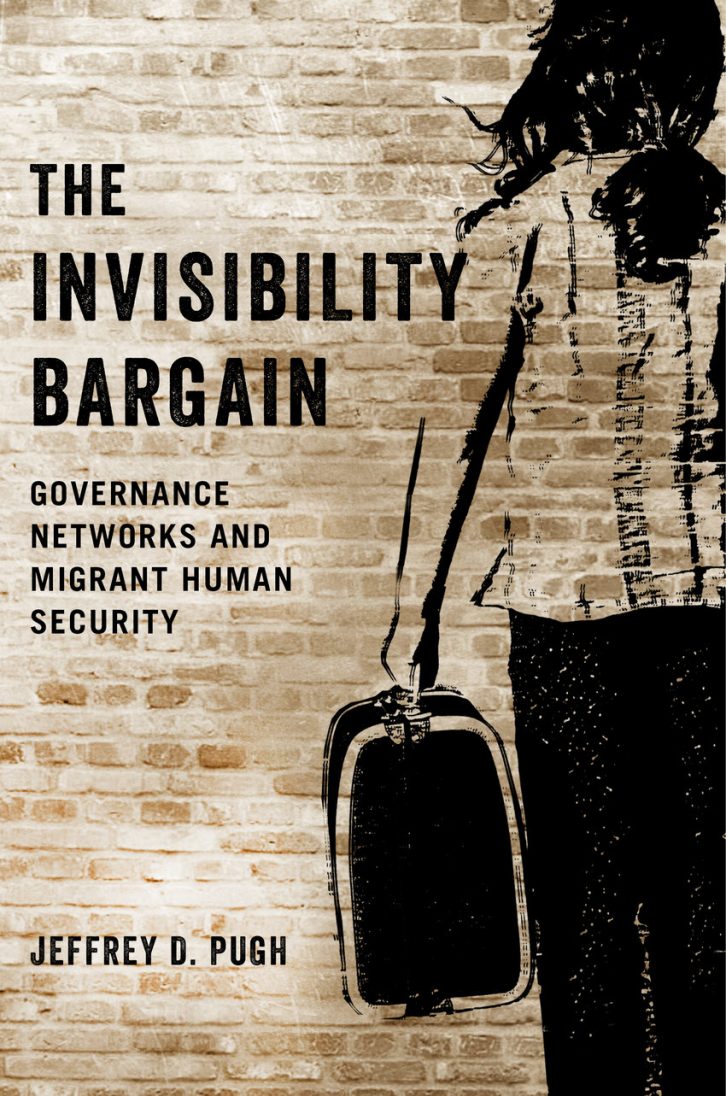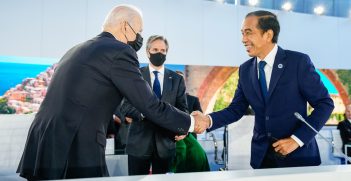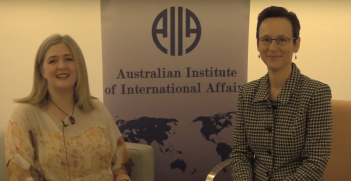Book Review: The Invisibility Bargain: Governance Networks and Migrant Human Security

In The Invisibility Bargain: Governance, Networks and Human Security, Jeffrey Pugh focuses on Ecuador’s immigration policies from 2000 to 2017. Pugh questions how Colombian immigrants can secure protection policies such as human rights, resources, and recognition from the government of Ecuador.
The central statement of the book is that through brokers, immigrants can pressure governments to implement policies that benefit them, avoiding the backlash that they could have from the host population if they do this demands directly to the government. To sustain this argument, the author focusses on theoretical approaches about the relationships among state, non-state and international institutions that can produce social structures that enhance protection, peace, and human security to the immigrants and to the host populations.
The countries generally organise immigration policies through two different channels: restriction and organisation. Most of the countries in the world have a dedicated legislative text which outlines the requirements of entrance and permanency of foreign populations into the country. Nevertheless, in developing countries such as Ecuador, the oversight of the implementation of these policies is costly and often ineffective. In reality, formal channels of immigration are usually accompanied by informal channels. These informal channels are tolerated by host countries’ governments because they can bring benefits to the host populations, such as low labour cost, family reunification, or ethnic representation. However, when there are negative consequences to the host population (economic competition or nativism), the government will try to identify and remove immigrants. There is an informal understanding of what will be tolerated from the immigrants, and this is what the author calls the invisibility bargain:
The three expectations of the invisibility bargain are: a) immigrants should be perceived to be making a valued contribution to the host society, especially in bringing economic benefits ; b) they remain socially invisible, meaning that ascriptive and cultural differences that challenge the host population expectations of acceptability are minimized and c) they remain politically invisible, meaning that they are not engaging in overt, public contestation and claim making to government.
When these expectations are not met, host populations will pressure the government to implement more restrictive policies against immigrants. The state acts as the human rights protector and, at the same time, as the enforcer of rules. This is why sometimes immigrants prefer to avoid reaching out to the government for protection, because it might risk their livelihoods. So, how can immigrants get protection and resources? The author argues that through the governance networks that connects state agencies with non-state actors, such as international and nongovernmental organisations, firms, informal networks, and others that act as access points, immigrants can use to improve their conditions.
The empirical analysis presented in the book shows three different stages of the immigration governance in Ecuador in the period from 2000 to 2017 in six different provinces. In the first stage, from 2000 to 2006, the Catholic church and United Nations High Commissioner for Refugees (UNHCR) defined the immigration agenda of protection, with the state showing very little interest in the topic. In the second stage, from 2007 to 2011, the government started to realise the importance of immigration and worked together with UNHCR to implement protection policies for immigrants. In the last stage, from 2012 to 2017, the government retook a preponderant place in the immigration policies, and state agencies started to gain more control in the provision of policies to the immigrants.
The author’s analysis leads to three main conclusions. The first is that non-state actors are central for immigrants to gain access points to resources and rights. When the government assumed a preponderant role in the last stage, immigrants had less access to security and resources.
The second conclusion is that immigrants have different strategies to cope through this complex governance scenario that can be summarised in three different categories. The first is reducing social distance by developing relationships with the native population, and with this, reduce the risk of having negative backlash. The second category is minimising conflict by avoiding host populations altogether. The third is forming coalitions and networks with host population, NGOs, and returned migrant allies so they can have a barrier of internal protections against any negative backlash.
The third conclusion is that when immigrants decide to form coalitions, they have a greater likelihood of better treatment and quality of life. The denser the networks, the better the outcomes for migrants and their neighbours. The key mechanisms in this governance network that leads to more constructive policies are building political leverage to empower the brokers to advocate for better policies; providing reciprocal resource sharing of money, expertise, and political will so the government does not neglect migrants; and using the expertise and links to the personnel in different positions in the agencies of the government, IGOs, and NGOs that usually move within these organisations and can bring social capital and personal pre-existing relations with them strengthening their working relations.
There were three major immigration policies that extended protections and rights to the immigrants from Ecuador between 2008 and 2017: the 2008 Constitution, which incorporated migration and refugee provisions, the 2009-2010 Enhanced Registration, which doubled the number of registered refugees, and the 2017 Organic Law on Human Mobility, which gave detailed protection for all categories of mobility. The author presents evidence that these three policies were the result of iterative processes of deliberation, advocacy, and negotiation in which non-state and international actors acted as brokers to the migrants with the government of Ecuador.
In conclusion, this book is a very interesting source that presents studies that are fresh and new in the immigration studies in Latin America. New studies in immigration policy change in the region have discovered that international organisations and non-governmental organisations, especially migrant organisations and academia, have been not just been an advocate for human rights, but also as an educator and trainer of street and mid-level bureaucrats and this benefits the quality of life of immigrants. The way that the author presents his empirical analysis and the theory of the invisibility bargain will be a referent in future studies of the region. On the other hand, more emphasis should be placed on the influence of national public opinion on immigration policy changes, since there are studies that use the same sources as the author in which it is discovered that public opinion is not informed and have incoherent responses against migrant population which does not give a very clear path of action to governments to act. More clarification of the specific circumstances in which it is possible to have backlashes from the national public opinion in this invisibility bargain can be discussed further.
This is a review of Jeffrey D. Pugh, The Invisibility Bargain: Governance Networks and Migrant Human Security, (Oxford University Press, 2021). ISBN:9780197538692
Jaime Arturo Padilla Ugarte is a 4th year PhD student in The University of Sydney. His research topics are related to agenda setting, immigration policies in Mexico for Central Americans and Mexico – US immigration relationship.
This article is published under a Creative Commons Licence and may be republished with attribution.





